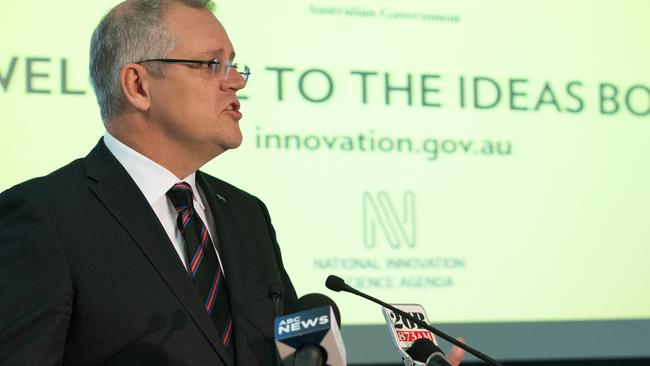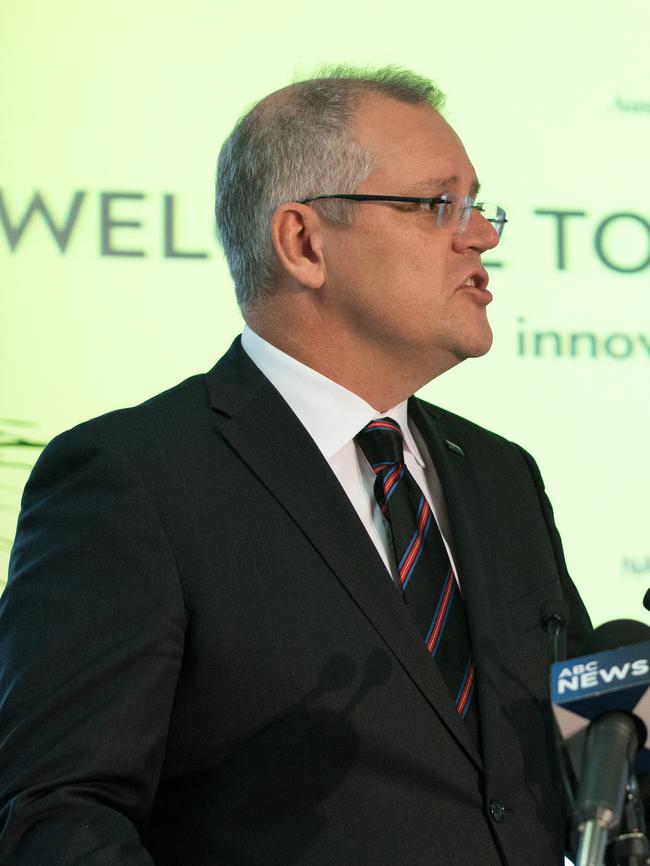Budget brought forward as Malcolm Turnbull prepares for likely double dissolution election
THE Federal Budget will be handed down one week early, less than two months before a likely double dissolution election — and without major income tax cuts.

News
Don't miss out on the headlines from News. Followed categories will be added to My News.
- Turnbull threatens double dissolution, recalls Parliament
- Newspoll: Turnbull’s approval into negative territory
- Poll shows Pyne would struggle to keep seat
- Analysis: Turnbull had to throw down the gauntlet
THE Federal Budget will be handed down one week early, less than two months before a likely double dissolution election — and without major income tax cuts.
Prime Minister Malcolm Turnbull on Monday signalled the rescheduled Budget would include tax changes to support job creation and economic growth.
“Of course, the upcoming Budget will include more elements in our economic plan, ensuring Australia’s tax system is backing jobs, growth and investment in Australian enterprise,’’ Mr Turnbull said.
But Treasurer Scott Morrison confirmed “there isn’t a lot of room to move” on personal income tax.
“When we decided we weren’t going to do the GST, that meant the opportunity for major changes to income tax were largely removed,” he said.
Mr Morrison defended the scheduled end of a levy on high-income earners next year.

He said the two per cent levy imposed on people earning more than $180,000 in 2014 was always planned to be temporary.
“If you were to change that, you would actually have to put their taxes up again,” Mr Morrison said.
The Treasurer was informed that the Budget was being brought forward to May 3 when a teleconference of cabinet ministers was held at 10am on Monday.
Mr Morrison said he was excited about bringing down a budget which would assist the ongoing transition of the Australian economy.
The Prime Minister and Treasurer are faced with the challenge of demonstrating they are responsibly addressing long-term problems with expenditure and revenue at the same time as winning over voters.
Labor has made proposals to tackle multinational tax avoidance, increase tobacco excise and tighten capital gains, superannuation and negative gearing tax concessions.
These measures would save almost $10 billion each year on average over the next ten years.
The most politically palatable option is increasing the tobacco excise.
Although smokers would be infuriated by another bump in the price of a pack of cigarettes, most agree that discouraging smoking is a reasonable aim.
It’s also the measure that could provide the biggest single saving to the Budget — almost $50 billion over the next decade.
And although it is a policy announced by Labor, Mr Turnbull actually put the option forward in his 2009 Budget reply speech when he was Opposition Leader.
The closeness of the Budget to the election is likely to lead to the government dumping many of the $36 billion worth of savings which have been stalled in the Senate.
The Government has already dumped plans to introduce a new Medicare co-payment for GP visits and shelved a proposal to uncap university fees.
It has also been having problems convincing the Senate to back a $3.5 billion overhaul of childcare subsidies and Family Tax Benefit payments.
WHAT’S IN THE BUDGET MIX
Ruled out:
Increase GST
Personal tax cuts
Permanent high income levy
Unlikely:
Tighten negative gearing rules
Limit capital gains concessions
In the mix:
Reduce the company tax rate
Limit personal income tax bracket creep
Limit of but also simplify tax deductions
Tighten superannuation concessions
Increase Medicare levy
Funding for public transport
Increase tobacco excise


